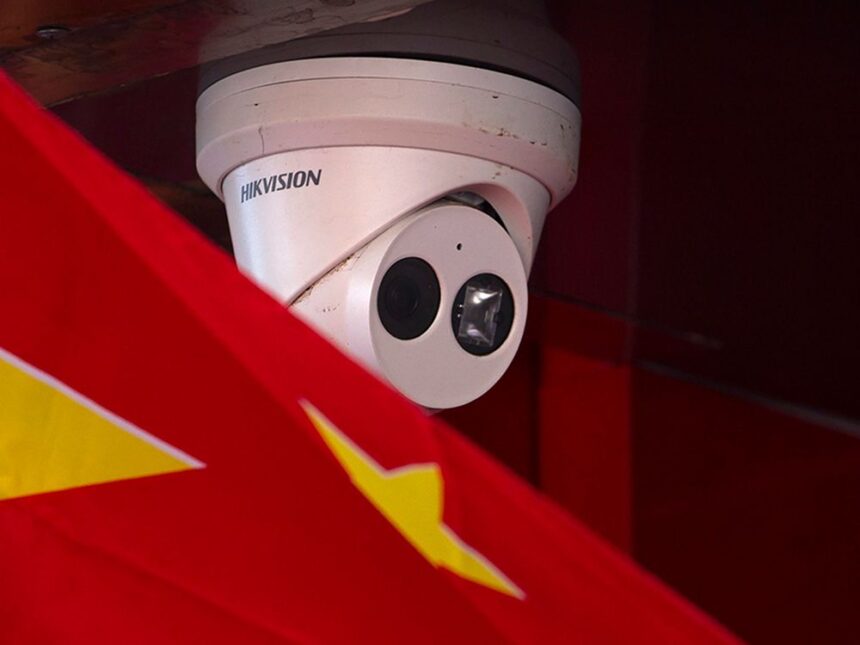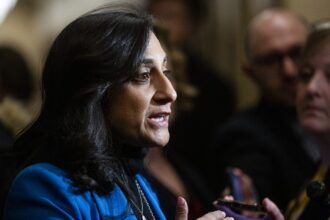In an unprecedented legal challenge that strikes at the heart of Canada’s national security apparatus, Chinese surveillance giant Hikvision has launched a formal appeal against Ottawa’s decision to ban its equipment from government facilities. The move comes after months of escalating tensions between Canada and China over technology security concerns that have reverberated throughout the Canadian political landscape.
The appeal, filed earlier this week with the Federal Court of Canada, directly contests the Liberal government’s November directive ordering all federal departments to eliminate Hikvision and Dahua equipment from their premises by 2026, citing significant security risks. This bold counteraction represents the first major legal challenge to Canada’s growing restrictions on Chinese technology.
“This appeal raises fundamental questions about procedural fairness and evidence-based policy decisions,” said a Hikvision spokesperson in a statement obtained by CO24. “We believe the government’s decision was made without proper consultation and lacks substantive evidence of any security threat posed by our products.”
At the center of Canada’s concerns is Hikvision’s reported connections to the Chinese government and its alleged role in human rights abuses against Uyghur minorities in Xinjiang. The company, partially owned by a Chinese state-controlled enterprise, has repeatedly denied these allegations, insisting its products meet international security standards and pose no threat to Canadian interests.
Security experts following the case note that the legal battle will likely test the boundaries of Canada’s national security review processes. Michael Bolton, a cybersecurity analyst with the Canadian Centre for Technology Policy, told CO24, “This appeal will force the government to publicly defend its intelligence assessments in court—something security agencies typically prefer to avoid.”
The ban reflects a broader pattern of Western democracies restricting Chinese technology over security concerns. The United States implemented similar measures against Hikvision in 2019, followed by the United Kingdom and Australia. Canada’s decision, though delayed compared to its Five Eyes intelligence allies, signals an important shift in Canada’s approach to foreign technology.
Industry observers note that the ban has already sent ripples through Canada’s public and private sectors. Many provincial and municipal governments have begun reassessing their own security infrastructure, with some preemptively removing Chinese surveillance equipment despite not being directly affected by the federal directive.
“The economic implications are significant,” explains Samantha Reynolds, an economist specializing in Canada-China trade relations. “Beyond the immediate costs of equipment replacement, this dispute represents another fracture in the already strained economic relationship between Ottawa and Beijing.”
For Canadian businesses caught in the crossfire, the uncertainty poses real challenges. Security contractors who have installed thousands of Hikvision cameras across commercial properties now face difficult conversations with clients about potential replacements, even as the legal battle unfolds.
Public safety experts emphasize that the case highlights the growing tension between national security interests and global supply chains. “This isn’t just about cameras,” said former CSIS intelligence officer Richard Fadden in a recent analysis of the situation. “It’s about how Canada protects its critical infrastructure in an era where technology is increasingly becoming a geopolitical battleground.”
As the case moves through the courts, both sides prepare for what could be a protracted legal struggle with far-reaching implications. The outcome will likely establish important precedents for how Canada balances security concerns with international trade relationships and legal due process.
The question now facing Canadians extends beyond this specific case: In an increasingly polarized global technology landscape, how can we maintain both security and openness without becoming collateral damage in a larger geopolitical contest?










